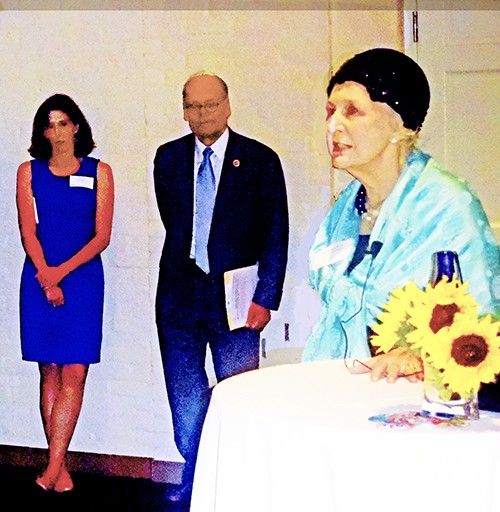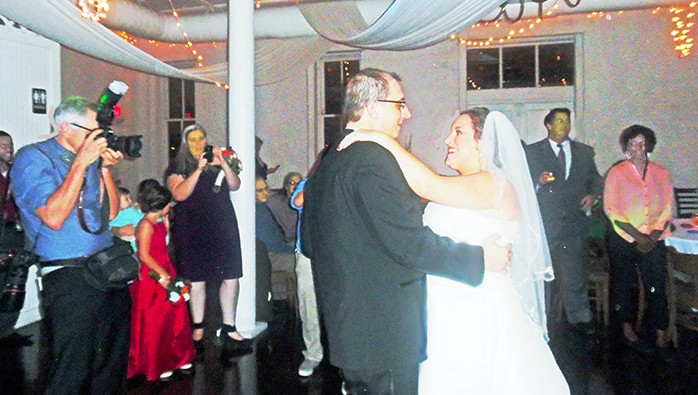A characteristic of any political season — and a sure sign that one is under way for real — is the proliferation of public forums to which all candidates, of any and all persuasions, are invited. Given the length of most election-year rosters, the invitees to these events usually are given only a minute or two to introduce themselves and talk about their backgrounds and qualifications.
The time constraints are such that not much gets said about platforms, although at least a modicum of lip service is generally paid to the event sponsor and the nature of the audience attracted. During the last week a pair of forums — or cattle calls, as they are inelegantly called in pol-speak — illustrated the principle.
One event, held Wednesday at the Spaghetti Warehouse downtown, was sponsored by Diversity Memphis, and the purpose implied in the organization’s name was paid proper homage in specific statements of the attending candidates, as well as by the fact that they ranged across the political spectrum.
An “open house” for legislative and congressional candidates held Monday of this week by the Sierra Club at Idlewild Presbyterian Church, generated statements of fealty to environmental concerns that ranged from the basic to the elaborate.
But, again, these all-candidate affairs do not function so much as opportunities to itemize platforms as they serve as a means of familiarizing audiences with just who is running and for what. In that sense, they are like job interviews, in which the brevity of a quick impression counts for much. That they are also opportunities for the candidates to size up the opposition is something of an ancillary benefit.
As a campaign year wears on, there are so many of these affairs that the audience consists almost entirely of candidates and their helpers. The participants at such events are speaking to each other, and this fact is often cited as a reason to lay off attending them by more cynical candidates.
Still, in most cases, there is a correlation of sorts between candidates’ participation in public forums and their ultimate success at the polls. And voters who look in on them get a chance to measure candidate versus candidate in key races.
One race of interest — one of few countywide contests on the forthcoming August 4th ballot (the others are de facto special elections involving judges) — was prefigured at the Diversity Memphis affair with an appearance by Ed Stanton Jr., who seeks reelection as General Sessions Clerk.
Stanton, along with County Assessor Cheyenne Johnson, has been one of the few Democrats to defy the Republican winning streak in recent county elections, and he faces a GOP challenger this year, Richard Morton, a Probate Court employee, who also spoke at the Diversity affair. Ordinarily, Stanton’s incumbency would give him a decided advantage, but Democrats are concerned that the highly contested Republican primary for the 8th District congressional seat will draw a high percentage of GOP voters to the polls.
Another rivalry sure to loom large this year is that between incumbent District 30 state Senator Sara Kyle and her Democratic primary foe, former Senator Beverly Marrero. This is a grudge match of sorts. Marrero previously held the District 30 seat but lost a reapportioned version of it to her then Senate colleague Jim Kyle, Sara’s husband, in 2010.
When Jim Kyle became a Shelby County Chancellor after the 2014 election, his wife was a narrow victor over Marrero in an appointment vote by the Shelby County Democratic executive committee. Complicating the rivalry is the fact that Marrero is a friend and ally of 9th District Congressman Steve Cohen, who was ever at loggerheads with Jim Kyle during their joint service in the state Senate.
 Jackson Baker
Jackson Baker
State Senate opponents Sara Kyle (left) and Beverly Marrero at the Diversity Memphis forum
Judicial canons forbid Jim Kyle’s taking part in his wife’s reelection race, and Cohen has opponents to worry about in his own contested reelection race, but the shadow of their pre-existing rivalry hangs over the District 30 race.
Sara Kyle and Marrero were in evidence at both the Diversity Memphis and Sierra Club forums, and they are liable to see much of each other the rest of the way.
• Name confusion has played a significant role in many a past election in Memphis and Shelby County. Just ask Roderick Ford, a sometime candidate who has never been elected to anything, although he has netted a few extra votes in a race or two from people who (mistakenly) assumed him to be a member of the long-established Ford political clan.
Or ask William Chism, a novice candidate whose 2014 win in the Democratic primary for Probate Court Clerk no doubt owed much to his last name, identical to that of non-relative Sidney Chism, well-known political broker, former state senator, and, at the time, a prominent member of the Shelby County Commission.
Those were minor distractions that came to nothing much, bumps in the road compared to the more serious misunderstanding that could confront Democratic voters in state House District 85, where veteran state Representative Johnnie Turner has two primary opponents, one of whom bears a name long familiar within the councils of local public education.
This would be Keith Williams, whose candidacy is indeed focused on education. Sort of. This Keith Williams — identified as a pastor, Memphis parent, and senior adviser for the “Tennessee Black Alliance for Educational Options” — testified to the General Assembly this past year in favor of state vouchers for use in private school.
That’s something that is pure anathema to another and much better-known Keith Williams (Keith O. Williams, more fully) who has served as both chairman and executive director of the Memphis/Shelby County Education Association and who is a vehement and vocal opponent of school vouchers. To compound the potential confusion, Keith Williams of the MEA ran unsuccessfully last year for the Memphis City Council, and the presence on this year’s election ballot of someone with the same name could be a real voter snag.
Turner, a former teacher and a decided opponent of school vouchers herself, says that Keith Williams of the MSCEA has pledged his support to her and will do what he can to clear up such voter confusion as might be.
 JB
JB  JB
JB 